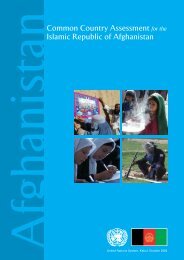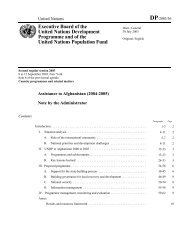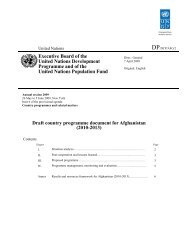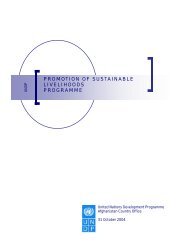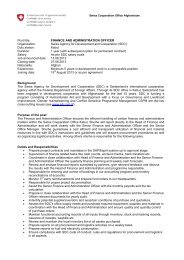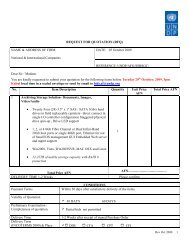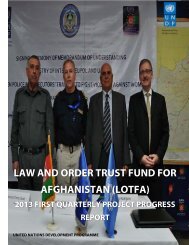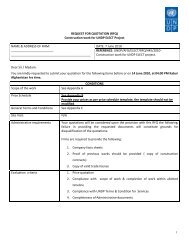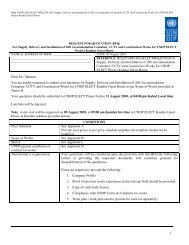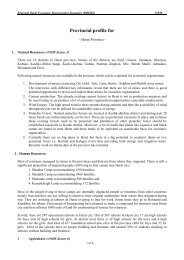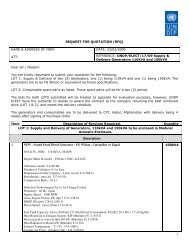Development Cooperation Report 2012 - UNDP Afghanistan
Development Cooperation Report 2012 - UNDP Afghanistan
Development Cooperation Report 2012 - UNDP Afghanistan
Create successful ePaper yourself
Turn your PDF publications into a flip-book with our unique Google optimized e-Paper software.
CONTEXT<br />
5<br />
<strong>Afghanistan</strong> has come a long way. The first decade of development partnership (2001-<br />
2011) between Afghans and the international community produced remarkable<br />
achievements in the areas of governance, education, health, infrastructure and<br />
economic growth. The Bonn Conference in December 2001 marked a new beginning<br />
for Afghans to build a democratic and stable state. Drafting a new constitution,<br />
running presidential elections and creating a legislature were some of the early<br />
political benchmarks that were jointly achieved by Afghans and their development<br />
partners. Since 2003, real per capita GDP has been growing at an average rate of 9<br />
percent, and domestic revenues have increased significantly from US$ 130 million in<br />
2002 to approximately US$ 2 billion in 2011. Almost 8000 kilometers of national and<br />
regional highways have been either reconstructed or newly built. Around 8 million<br />
children are going to school, of which 38 percent are girls. Close to 60 percent of<br />
the Afghan population have access to basic health services. Overall, the first decade<br />
of development partnership has brought significant improvements in lives of many<br />
Afghans.<br />
At the national level, there has been significant progress in terms of governance<br />
reforms, creation of state institutions and increased delivery of basic services in various<br />
sectors of the economy. Creation of a credible public financial management system<br />
has enabled the government to achieve significant revenue generation since 2002<br />
and absorb more funding through the national budget. While the trend for revenue<br />
mobilization is expected to experience modest growth during the transition period,<br />
the long term financial prospects are promising as the extractive industries begin to<br />
generate higher revenues throughout the transformation decade and beyond. In<br />
terms of fiscal and budget transparency, <strong>Afghanistan</strong> has made great strides over the<br />
last couple of years. Allowing the public to access budget information, and providing<br />
them with the opportunity to participate in the budget process at the national level,<br />
<strong>Afghanistan</strong> was able to progress from a score of 8 in 2008 to a score of 21 in 2010.<br />
And there is an indication from the current review that the score will increase to 50<br />
or above in the near future.<br />
Despite considerable achievements, there are various development challenges ahead<br />
as <strong>Afghanistan</strong> enters a new phase of development. Conflict and poverty will remain<br />
as major challenges of the next decade. Aid dependency will continue throughout<br />
transition (<strong>2012</strong>-2014) and the transformation decade (2015-2025). The withdrawal<br />
of foreign troops by end 2014 may prompt possible declines in aid that could leave<br />
the country facing hard budget constraints and low economic activity in the years to<br />
DEVELOPMENT COOPERATION REPORT



